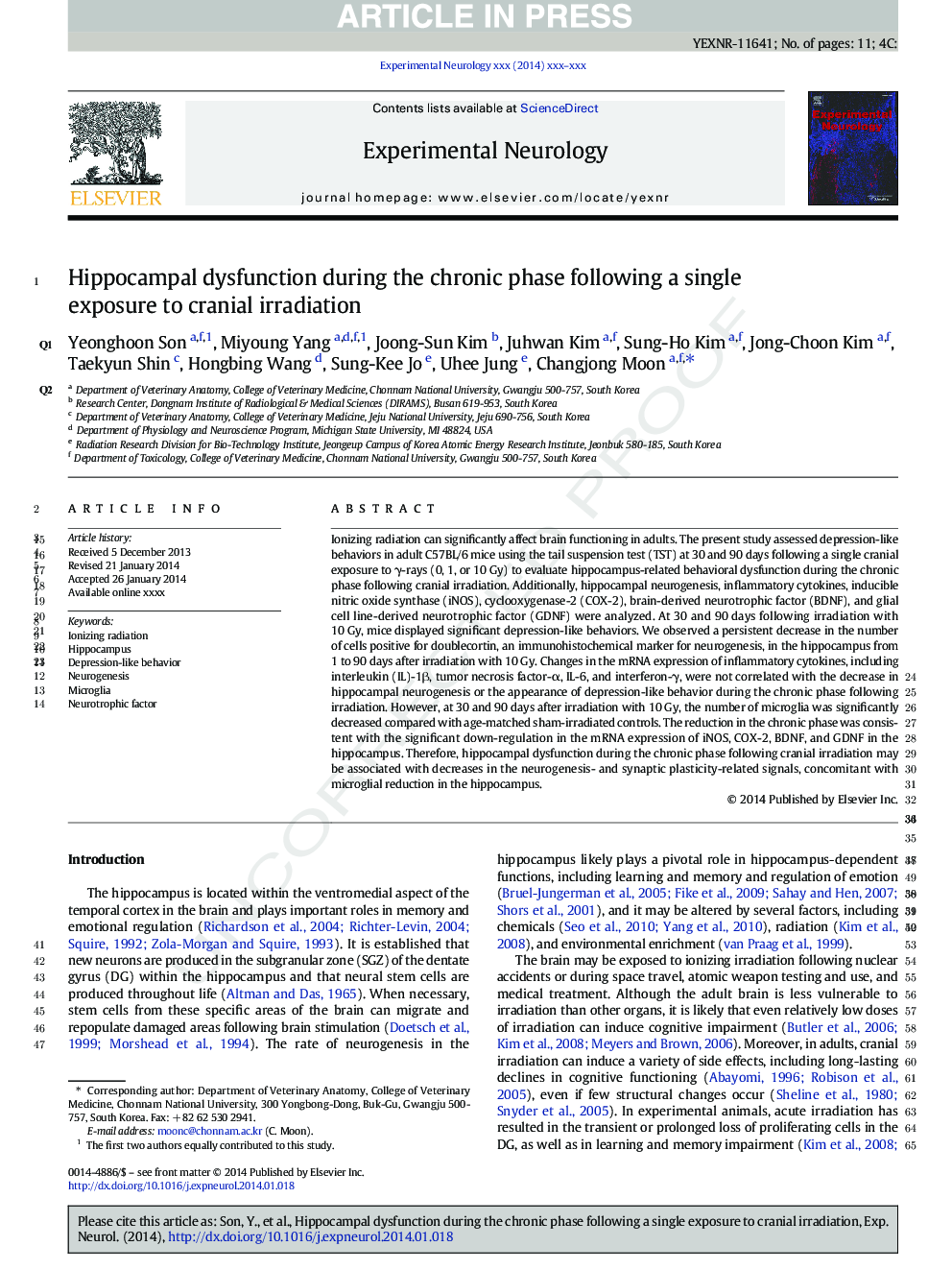| Article ID | Journal | Published Year | Pages | File Type |
|---|---|---|---|---|
| 6017877 | Experimental Neurology | 2014 | 11 Pages |
Abstract
Ionizing radiation can significantly affect brain functioning in adults. The present study assessed depression-like behaviors in adult C57BL/6 mice using the tail suspension test (TST) at 30 and 90 days following a single cranial exposure to γ-rays (0, 1, or 10 Gy) to evaluate hippocampus-related behavioral dysfunction during the chronic phase following cranial irradiation. Additionally, hippocampal neurogenesis, inflammatory cytokines, inducible nitric oxide synthase (iNOS), cyclooxygenase-2 (COX-2), brain-derived neurotrophic factor (BDNF), and glial cell line-derived neurotrophic factor (GDNF) were analyzed. At 30 and 90 days following irradiation with 10 Gy, mice displayed significant depression-like behaviors. We observed a persistent decrease in the number of cells positive for doublecortin, an immunohistochemical marker for neurogenesis, in the hippocampus from 1 to 90 days after irradiation with 10 Gy. Changes in the mRNA expression of inflammatory cytokines, including interleukin (IL)-1β, tumor necrosis factor-α, IL-6, and interferon-γ, were not correlated with the decrease in hippocampal neurogenesis or the appearance of depression-like behavior during the chronic phase following irradiation. However, at 30 and 90 days after irradiation with 10 Gy, the number of microglia was significantly decreased compared with age-matched sham-irradiated controls. The reduction in the chronic phase was consistent with the significant down-regulation in the mRNA expression of iNOS, COX-2, BDNF, and GDNF in the hippocampus. Therefore, hippocampal dysfunction during the chronic phase following cranial irradiation may be associated with decreases in the neurogenesis- and synaptic plasticity-related signals, concomitant with microglial reduction in the hippocampus.
Keywords
Related Topics
Life Sciences
Neuroscience
Neurology
Authors
Yeonghoon Son, Miyoung Yang, Joong-Sun Kim, Juhwan Kim, Sung-Ho Kim, Jong-Choon Kim, Taekyun Shin, Hongbing Wang, Sung-Kee Jo, Uhee Jung, Changjong Moon,
